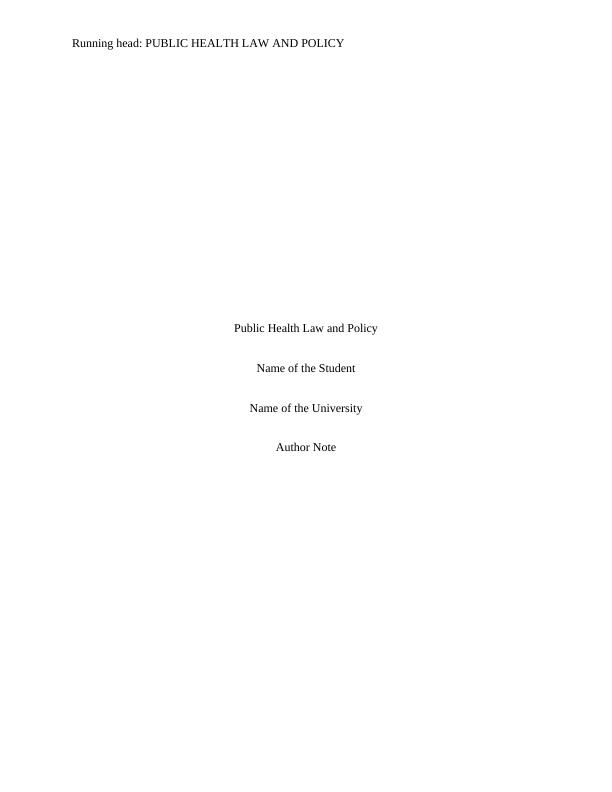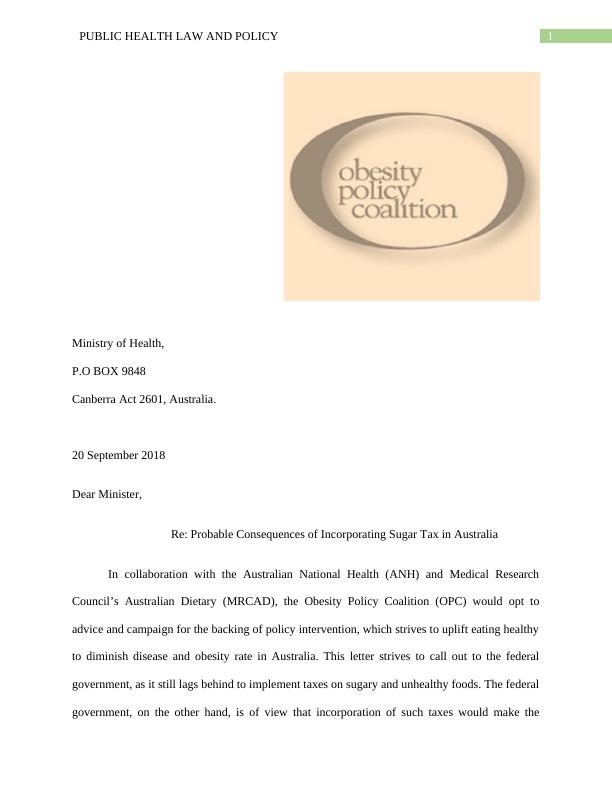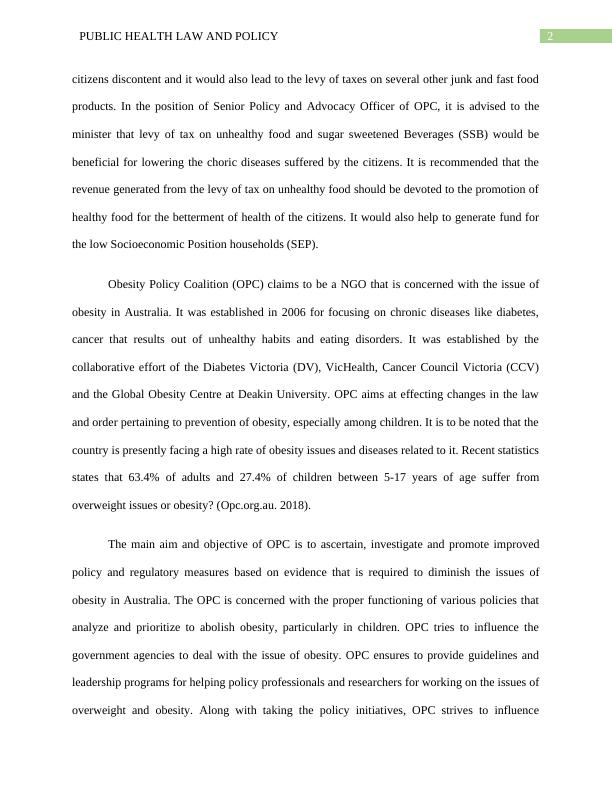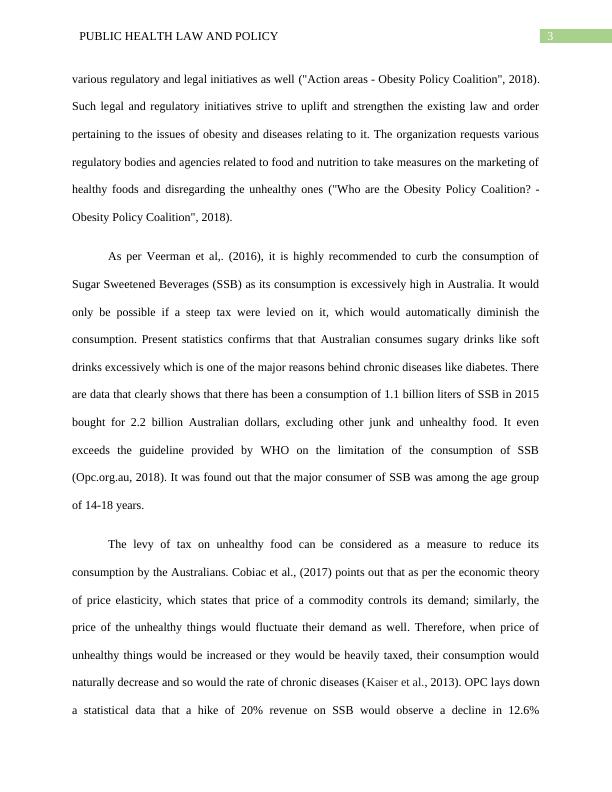Probable Consequences of Incorporating Sugar Tax in Australia
12 Pages2920 Words78 Views
Added on 2023-06-05
About This Document
This letter calls out to the federal government to implement taxes on sugary and unhealthy foods in Australia. The Obesity Policy Coalition recommends the levy of tax on unhealthy food and sugar sweetened Beverages (SSB) to lower the chronic diseases suffered by the citizens. The revenue generated from the levy of tax on unhealthy food should be devoted to the promotion of healthy food for the betterment of health of the citizens. The letter also discusses the benefits and advantages of imposing the levy on sugar in SSBs.
Probable Consequences of Incorporating Sugar Tax in Australia
Added on 2023-06-05
ShareRelated Documents
End of preview
Want to access all the pages? Upload your documents or become a member.
Health Policy Brief on Reducing Sugar-Sweetened Beverage Consumption in Australia
|16
|3930
|1
Fat Tax: Combating Australia's Obesity Epidemic
|6
|1637
|66
Persuasive Essay on ‘Should Australia introduce a sugar tax?’
|7
|1628
|321
Overweight and Obesity Australia Content 2022
|4
|796
|24
Sugar Tax: A Health Service Plan to Control Sugar Intake
|9
|2996
|91
Childhood Obesity: Causes, Consequences and Prevention Strategies
|6
|1570
|206




